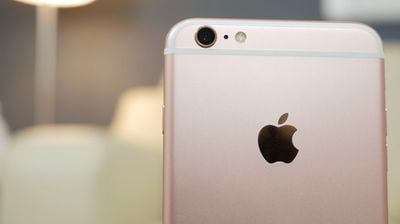Apple to Pay Canadian Customers Up to $150 Following iPhone Battery Controversy
A court in British Columbia, Canada today approved Apple's settlement related to the iPhone battery throttling controversy in 2018, according to CBC News.

Apple agreed to pay up to $14.4 million (CAD) to settle a class action lawsuit in Canada that alleged the company secretly throttled the performance of some iPhone models. Each affected customer who submits a claim will receive a payment of between $17.50 and $150 (CAD) from Apple, with the exact payout amount to be dependent on the total number of claims submitted. More information on how to submit a claim will be shared on the settlement website, but a specific timeframe has yet to be provided.
The class includes any current or former resident of Canada (excluding Quebec) who owned and/or purchased an iPhone 6, iPhone 6 Plus, iPhone 6s, iPhone 6s Plus, and/or iPhone SE with iOS 10.2.1 or later installed or downloaded, and/or an iPhone 7 or iPhone 7 Plus with iOS 11.2 or later installed or downloaded, before December 21, 2017. A serial number will be required for each affected iPhone, according to CBC News.
Apple has denied the allegations described in the lawsuit, and the settlement does not represent an admission of fault. The settlement allows for Apple to avoid the additional time and costs involved with continued litigation.
Apple was sued in multiple Canadian provinces over iPhone battery throttling in 2018, including Alberta, British Columbia, Ontario, and Saskatchewan. The cases were filed shortly after Apple revealed that it had started throttling the maximum performance of some iPhone models with "chemically aged" batteries, when necessary, to prevent the devices from unexpectedly shutting down. Apple introduced this new power management system in iOS 10.2.1, but it initially failed to mention the change in that update's release notes, leading to public outcry. Apple eventually apologized about its lack of transparency, and temporarily lowered the price of iPhone battery replacements to $29 (USD) until the end of 2018.
Apple agreed to pay up to $500 million (USD) to settle a similar class action lawsuit in the U.S., and payments started going out in January there.
Popular Stories
Apple should unveil the iPhone 17 series in September, and there might be one bigger difference between the Pro and Pro Max models this year.
As always, the Pro Max model will be larger than the Pro model:iPhone 17 Pro: 6.3-inch display
iPhone 17 Pro Max: 6.9-inch displayGiven the Pro Max is physically larger than the Pro, it has more internal space, allowing for a larger battery and...
Since the iPhone X in 2017, all of Apple's highest-end iPhone models have featured either stainless steel or titanium frames, but it has now been rumored that this design decision will be coming to an end with the iPhone 17 Pro models later this year.
In a post on Chinese social media platform Weibo today, the account Instant Digital said that the iPhone 17 Pro models will have an aluminum...
The calendar has turned to July, meaning that 2025 is now more than half over. And while the summer months are often quiet for Apple, the company still has more than a dozen products coming later this year, according to rumors.
Below, we have outlined at least 15 new Apple products that are expected to launch later this year, along with key rumored features for each.
iPhone 17 Series
iPho...
Apple is continuing to refine and update iOS 26, and beta three features smaller changes than we saw in beta 2, plus further tweaks to the Liquid Glass design. Apple is gearing up for the next phase of beta testing, and the company has promised that a public beta is set to come out in July.
Transparency
In some apps like Apple Music, Podcasts, and the App Store, Apple has toned down the...
In 2020, Apple added a digital car key feature to its Wallet app, allowing users to lock, unlock, and start a compatible vehicle with an iPhone or Apple Watch. The feature is currently offered by select automakers, including Audi, BMW, Hyundai, Kia, Genesis, Mercedes-Benz, Volvo, and a handful of others, and it is set to expand further.
Apple has a web page with a list of vehicle models that ...
Apple's next-generation iPhone 17 Pro and iPhone 17 Pro Max are just over two months away, and there are plenty of rumors about the devices.
Below, we recap key changes rumored for the iPhone 17 Pro models.
Latest Rumors
These rumors surfaced in June and July:Apple logo repositioned: Apple's logo may have a lower position on the back of the iPhone 17 Pro models, compared to previous...
New renders today provide the best look yet relocated Apple logo and redesigned MagSafe magnet array of the iPhone 17 Pro and iPhone 17 Pro Max.
Image via Majin Bu.
Several of the design changes coming to the iPhone 17 Pro model have been rumored for some time, such as the elongated camera bump that spans the full width of the device, with the LiDAR Scanner and flash moving to the right side.
...
iPhone 17 models will feature a redesigned Dynamic Island user interface, according to a post today from Digital Chat Station, an account with more than three million followers on Chinese social media platform Weibo. The account has accurately leaked some information regarding future Apple products in the past.
The account did not share any specific details about the alleged changes that are ...
Amazon is back with its annual summertime Prime Day event, lasting for four days from July 8-11, the longest Prime Day yet. As it does every year, Prime Day offers shoppers a huge selection of deals across Amazon's storefront. With the event now underway, we're tracking numerous all-time low prices on Apple gear right now.
Note: MacRumors is an affiliate partner with Amazon. When you click a...





















